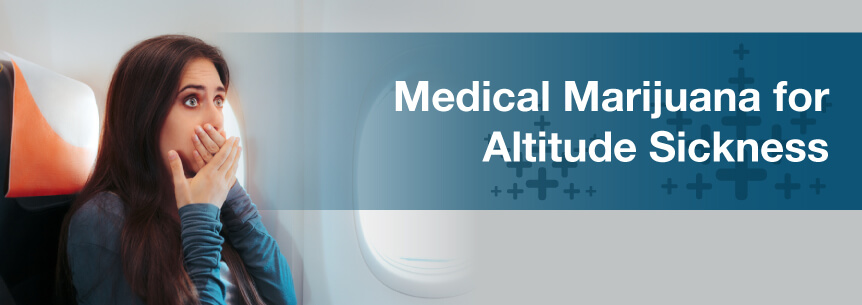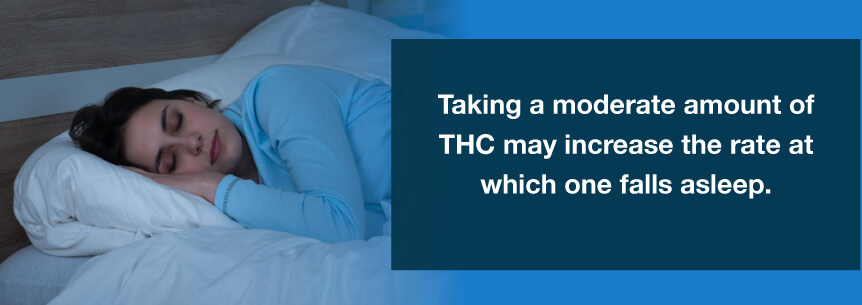
Altitude sickness is a combination of negative symptoms that occur due to exposure to limited oxygen at a very high altitude. The low atmospheric pressure at an elevation of 5,000 ft and above causes various symptoms, including:
Altitude sickness is divided into three categories based on the severity of the symptoms:
Altitude sickness is better prevented than cured. This is because the symptoms could appear suddenly if someone goes hiking or is climbing a mountain. At such a time, the person may not be able to get prompt medical help unless they have made prior arrangements for this.
While using marijuana for altitude sickness can be very effective, it’s also necessary to take the following precautions while hiking or climbing up a high mountain. Remember to follow these
When one is going to a high altitude of 5,000 feet or higher, they need to move up slowly. If they’re flying in from a low altitude to a city at a high altitude, they should stay in a town with an elevation of about 3,500 feet first before making the final transition.
While staying hydrated is vital on a typical day, it’s especially important during exercise at high altitudes. Remember to:
Drinking alcohols can worsen altitude sickness. Plus, alcohol is a respiratory depressant that diminishes the amount of oxygen in the body.
The literature on marijuana use at high altitudes to treat altitude sickness is quite sparse. Few clinical studies have been done to simulate the conditions at high altitudes while using marijuana to mitigate the symptoms of this condition.
However, some studies show marijuana helps improve respiration in people that have bronchial asthma. Cannabis also cures most of the symptoms of mild or moderate altitude sickness such as insomnia, nausea, reduced appetite and headaches.
Cannabis can help the user fall asleep faster. Taking a moderate amount of THC may increase the rate at which one falls asleep. Marijuana also helps clear up breathing problems that may result in sleep apnea. Taking CBD one or two hours before going to bed can help the user enjoy more restful sleep.

Most people who have experienced altitude sickness have intense headaches that defy medication. But marijuana can help ease or even prevent migraine headaches from occurring.
Cannabis contains specific natural compounds known as cannabinoids. When these compounds reach the brain, they bind to the network of cannabinoid receptors, which influence the way the user feels. Cannabinoids in marijuana alter the way the cannabinoid receptors work and help shut down pain signals. Both THC and CBD, which are cannabinoids in cannabis, can help ease pain.
CBD eases pain without making the patient feel intoxicated. For reducing severe pain such as migraines, inhaling the marijuana seems to have a more powerful and quicker effect than consuming edibles.
Marijuana may also be used as an effective treatment for nausea and vomiting that accompanies altitude sickness. Cannabis has been used to help chemotherapy patients to overcome the vomiting and nauseating associated with this form of cancer treatment. The gut has endocannabinoid receptors that can bind to the THC cannabinoids in marijuana to reduce nauseating symptoms and vomiting.
For fast and effective relief, consider smoking — or vaping to stay away from the smoke. Take a vape pen along with to use marijuana while hiking. To avoid inhaling cannabis at all, consider using tinctures.
It’s also advisable to use the best strains of marijuana for treating nausea. Suitable sativa strains include Durban Poison, Sour Diesel and Trinity. Ideal indica strains are Sensi Star, MK Ultra, Purple OG Kush and Blackwater.
Taking marijuana at high altitudes helps improve the condition of anyone who has to climb up a mountain that’s over 5,000 feet. After deciding to use cannabis for a hitch-free hike, here are some tips to keep in mind:
Marijuana can help people overcome altitude sickness if they take it with caution and observe the other precautions discussed above. Find a nearby cannabis doctor to learn more about marijuana medicine and altitude sickness.
No Information on MarijuanaDoctors.Com should be used to diagnose, treat, prevent or cure any disease or condition. You can view our Full Disclaimer here.